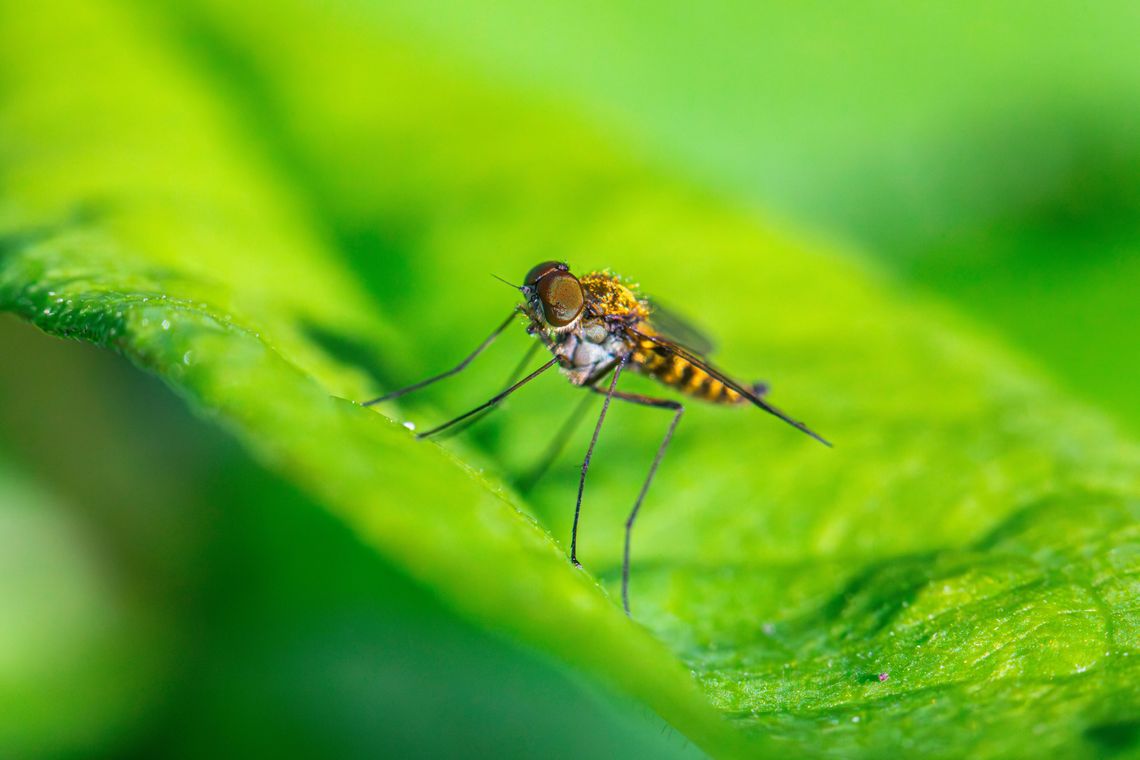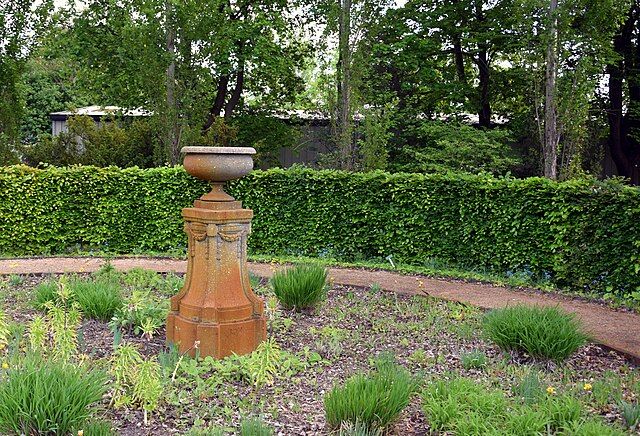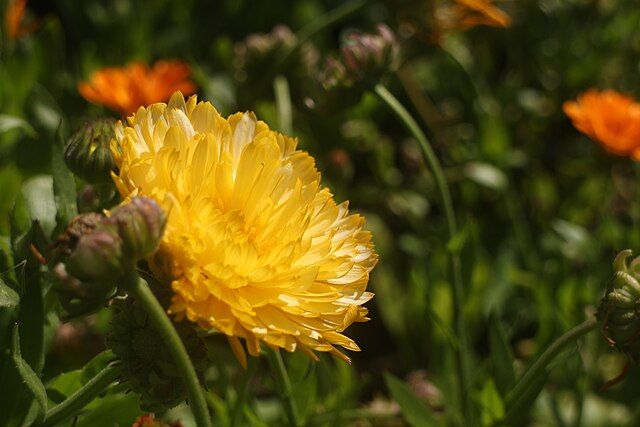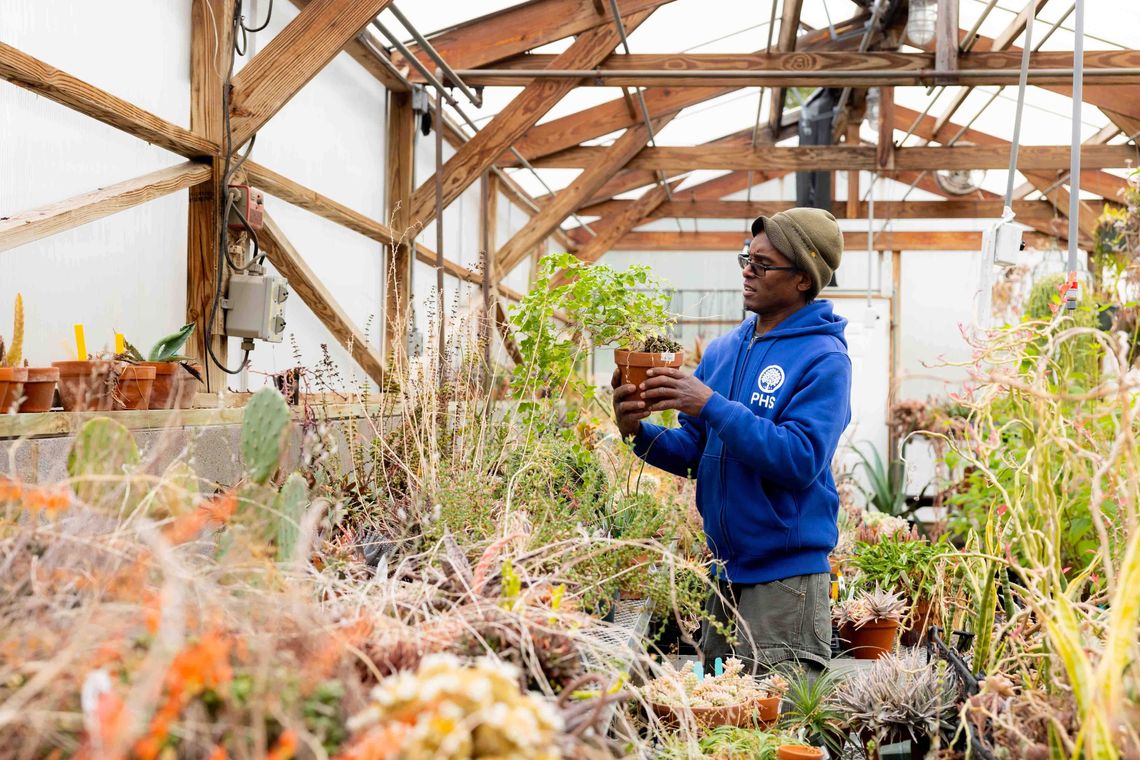



How to Get Rid of Mosquitoes in Your Backyard or Garden
gardening projects
seasonal tips

By Sally McCabe, Associate Director of Community Education
Some evenings, I feel like I’m hosting a buffet for the neighborhood mosquito population. Just when the air cools and the garden beckons, out come those tiny, persistent vampires. If you're wondering how to get rid of mosquitoes in your backyard, you're not alone. Over the years, I’ve learned that surrendering your yard to mosquitoes is not an option. These pests aren’t just irritating; they’re disease carriers. Keeping them at bay is essential for garden health and your own peace of mind. Here’s how I fight back organically and effectively.
Love growing your gardening knowledge? Sign up for a Know to Grow webinar—or join PHS and get in free!
Why Mosquitoes Love Your Backyard: It All Starts with Water
Every mosquito, from egg to adult, needs stagnant water to survive. A tiny puddle, curled leaf, forgotten bucket, or clogged gutter can become a mosquito nursery in no time. And while most people think of mosquitoes as a summer nuisance, their eggs and larvae can overwinter in wet soil, plant debris, or the sludge at the bottom of barrels. Once the temps rise or spring rains arrive, they hatch like clockwork.
The best way to control mosquitoes in your garden? Stop them before they fly. That means eliminating every source of standing water; even that plastic cup hiding under your hydrangea could be home to hundreds of larvae.

My Go-To Mosquito Prevention Tips
1. Dump Standing Water Regularly
Go on a “dump patrol” at least once a week. Check birdbaths (empty and refill daily), pet water bowls, plant saucers, unused planters, and toys. I’ve even found them breeding in the cat’s water and an unused upstairs toilet while we were away! You'd be surprised where they can find a comfortable puddle.
2. Clear Garden Clutter
Old pots, tin cans, overgrown areas, and forgotten toys are mosquito motels. Declutter regularly and pay close attention to shaded, hidden spots where water can collect. Discarded tires are one of the worst offenders.
3. Clean Out Your Gutters
Clogged gutters are a mosquito’s dream. Leaves and debris trap water, creating long-term breeding zones. Clean them out at least once a year and more often if your yard is surrounded by trees.
4. Manage Water Features Wisely
Flip plastic kiddie pools, empty wheelbarrows, and cover rain-filled containers. For ornamental ponds, install a bubbler or add goldfish — they love to snack on mosquito larvae. If you’ve got an unused pool, keep it chlorinated and cover-free. Even the water on a pool cover can harbor larvae.
5. Install Permeable Surfaces
When planning hardscaping, choose permeable pavers, gravel, or mulch paths over concrete. These allow water to soak into the ground rather than pooling and becoming mosquito-friendly.

How to Control Mosquitoes Naturally
Sometimes you just can’t get rid of all standing water. Rain barrels, ponds, or low-lying areas are areas where water can’t easily be covered or emptied. That’s where these organic mosquito control methods shine:
Mosquito Dunks and Sprinkles
These are your best friends for standing water you can't dump. They contain Bacillus thuringiensis israelensis (BTI) or Bacillus sphaericus, naturally occurring bacteria that produce a protein toxic only to mosquitoes and black fly larvae. The larvae eat it, can't digest it, and starve to death. Simple, effective, and safe for everything else – pets, birds, beneficial insects, even goldfish! A Bti "donut" can give up to 30 days of control. You can find these at most garden centers. Just toss them into rain barrels, ornamental ponds without fish, or any persistent standing water. I prefer the “sprinkle” form for smaller containers and use it weekly to be safe.
Vegetable Oil Barrier (Use with Caution)
A thin layer of light vegetable oil (about 1/3 cup with dish soap per 55-gallon drum) can suffocate larvae by preventing them from reaching the surface for air. Microbes in the water break down the oil within 24 hours, usually without harming aquatic animals. Use this only in water not used for irrigation, as it can leave residue.
Mosquito-Repelling Plants
No plant will eliminate mosquitoes entirely, but some can help repel them slightly, especially when their leaves are crushed or brushed against. Consider planting:
- Citronella grass
- Lemon balm
- Catnip
- Basil
- Rosemary
- Marigolds
Place these near seating areas, patios, or walkways for a small boost of natural deterrence.
Keeping Your Garden Tidy
Beyond just water, a tidy garden can help. Trim dense shrubs and tall grasses, as these can provide cool, damp resting spots for adult mosquitoes during the day. Improving air circulation can make your garden less appealing.

How to Protect Yourself from Mosquito Bites in the Garden
Even with all our best efforts, a few adult mosquitoes will inevitably break through the lines. When you're out there, especially at dawn or dusk when they are most active, keep these personal defenses in mind:
1. Dress for Defense
Long-sleeved shirts and full-length trousers are your best friends. Two layers of clothing make it much harder for them to pierce your skin. I've also noticed that wearing light-colored clothes seems to reduce my attractiveness to them.
2. Use Personal Netting
If you're serious about your garden time, especially when pruning or harvesting in a particularly buggy area, a mosquito net that fits over your hat or cap is a surprisingly effective investment.
3. Choose Organic Repellents
While DEET is widely known and effective, if you prefer not to use it, lotions containing oil of eucalyptus or citronella can offer mild insect repellent properties. Always remember to wash treated skin and clothing when you come back inside.
4. Bring Out the Fan
A simple oscillating fan on your porch or patio can be surprisingly effective. Mosquitoes are weak flyers, and a good breeze can keep them from landing on you.
Keep Mosquitoes Out of Your Backyard All Season Long
By diligently eliminating standing water, employing these organic and DIY strategies, and taking smart personal precautions, you can significantly reduce the mosquito population in your home garden. Trust me, a little effort goes a long way in turning that annoying buzz into the sweet silence of a thriving, bite-free oasis.


